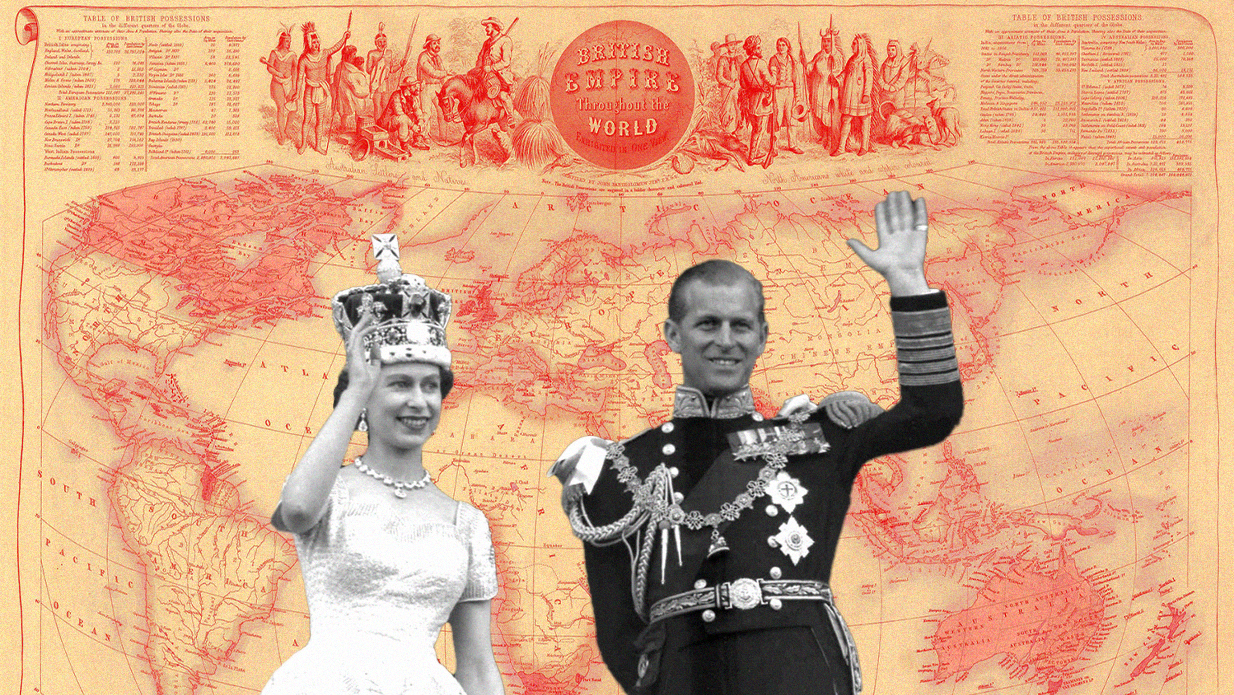This weekend, following a week of glowing media eulogies, Philip, Duke of Edinburgh and former Prince of Greece and Denmark, was buried in the private chapel at Windsor Castle. A Greek royal who was born into the Danish royal family as well, Philip married into the German family now on the throne of England. The confused history of these deeply incestuous bloodlines mirrors Philip’s own history, one tied to the horrors of British imperialism, and the excesses of monarchy across Europe.
“Philip the Greek:” Monarchist Wars and a Well-Deserved Exile
Philip’s journey started in Greece, on the island of Corfu. He was born Philippos Andreou Schleswig-Holstein-Sonderburg-Glücksburg, yet despite his clearly illustrious pedigree, much of the press coverage has focused on two facts: that he was technically born on a dining room table, and that he was smuggled out of the country in a fruit cake.
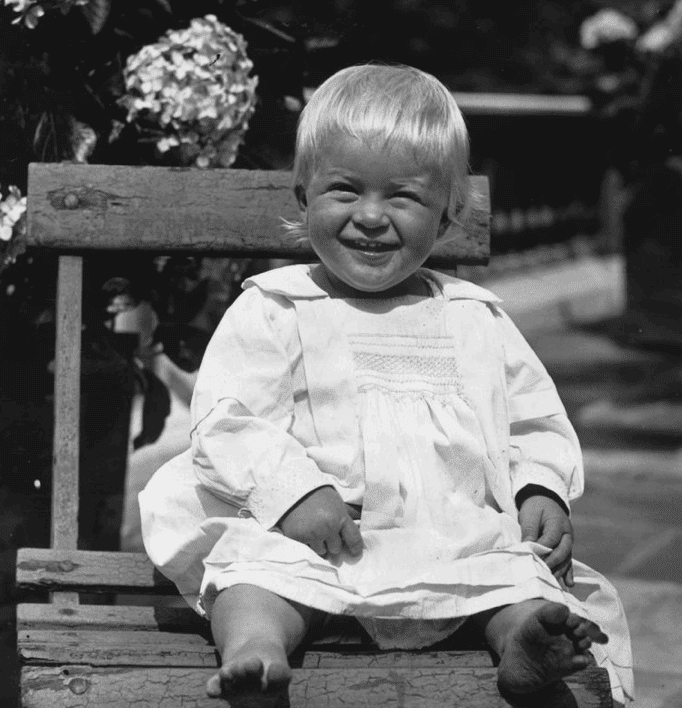
This is seen as endearing, although Philip himself does not remember Greece fondly: “I certainly never felt nostalgic about Greece. A grandfather assassinated and a father condemned to death does not endear me to the perpetrators.”
Why did all of this happen? Was young Prince Philippos’s family unjustly persecuted and driven from their home? Unsurprisingly, no. This was not the case of a family fleeing a war-torn nation, but rather 18-month old Philip’s first encounter with British colonialism.
Following the imperial bloodbath of the First World War, the victorious French, British, and Russian empires divided the territory of the defeated Ottoman Empire amongst themselves in an arrangement known as the Sykes-Picot Agreement.
Coincidentally, this highly secret agreement was only made public after the Bolshevik revolutionaries overthrew one of Philip’s many royal relatives, the autocrat Tsar Nicholas II, then found the text, and promptly published it in their newspaper.
Despite the agreement being made public, the Allies went forward with their division. Greece, and thus Philip’s ruling family, were granted large swaths of Turkey, which they invaded in 1919.
Philip’s father Prince Andrew jumped at the opportunity to invade the Middle East (so long as he was backed by the British) and, alongside his brother, led the Greek forces to a swift and utterly humiliating defeat. His attempts to expand the empire thwarted, Andrew, Philip, and the rest of the clan were expelled by the outraged Greeks.
Philip’s family was not content to remain in exile, however. In 1935 the monarchy was fully restored in Greece, and George II, Philip’s uncle, took the throne. Less than a year later, George II backed Ioannis Metaxas’s fascist coup, and played an integral role establishing the military junta which would rule Greece off and on for decades, and spark the Greek Civil War.
Philip, meanwhile, had joined the British navy. In 1941, the family left Greece yet again as the Nazis invaded the country.
Philip’s sisters, though, probably should have welcomed the Nazi invasion of Greece. Three of them were married to Nazi officers, and at least one of those Nazi officers was their second cousin. It seems that European royals who are struggling to decide whether to marry a Nazi or a blood relative can simply choose to do both.
Having left Greece for the British Navy, Philip, like his sisters, married his own cousin. To be fair, for Philip she was only his second cousin through King Christian IX of Denmark, and third cousin through Queen Victoria (practically strangers by royal standards). Despite the familiar connection, the romance between Philip and the now current queen Elizabeth II has been widely praised.
Philip’s loyalty to his wife has seen him described as a “feminist icon” or, “an unlikely feminist hero,” or even, “the royal family’s ultimate feminist.”
The only real criticism of Philip appears to be centered not around his role as one of the supreme expressions of colonialism in the world, but rather, the gaffes he made while speaking.
To be sure, Philip’s history of personal racism is as grotesque as it is unsurprising, but it appears less revealing than either his family’s history, or his own, as one of the leading figures of the British Empire.
Philip And the “Jewel in the Crown of the Empire”
Before his death on April 9, Prince Philip, to great acclaim, apparently visited 70 percent of the world’s nations. For most this would be quite the achievement, but as the UK has invaded 90 percent of the world’s nations, Philip has actually missed the mark by about twenty percent.
One country which Philip frequented was India, the former British possession and “crown in the jewel of the British Empire.”
India suffered immensely at the hands of the British. Countless Indians (though certainly numbering in the millions, if not tens of millions) were killed by British induced famines, massacres by British imperial forces, or the sectarian violence which plagued the subcontinent after the partition of “British India.”
“India must be bled,” proclaimed the Marquess of Salisbury, secretary of state for India and future prime minister. This is, of course, exactly what the British would accomplish in their largest outpost.
The Crown bled India dry, forcing the Indians to pay taxes towards their own subjugation, and, after the Crown purchased the notorious East India Company in 1858, adding the tab to the colony’s debt. It is therefore unsurprising that although India represented 23 percent of the world’s GDP when the British landed, it had fallen to under three percent by the time the colonials left in 1947.
This history, one might think, would encourage some degree of sensitivity, if not contrition, from Queen Elizabeth and Prince Philip as they tour the site of their family’s crimes. Nothing could have been further from the truth.
The couple visited India on three separate occasions over the course of their marriage. On the first in 1961, a mere 14 years after the British ended their occupation of India, they spent their time hunting Bengal tigers (of which, less than 5,000 now survive in the wild).
The couple’s next visit was, if possible, even more bizarre. During their return in 1983, the New York Times reported:
“Queen Elizabeth II and Prince Philip will live in British Raj splendor complete with period furniture and bedsheets…The Queen and the Prince will stay in a guest wing of the opulent Rashtrapati Bhavan, which was once the residence of British Viceroys…Bed linen, curtains and tapestries have been changed to blend with the regal past.”
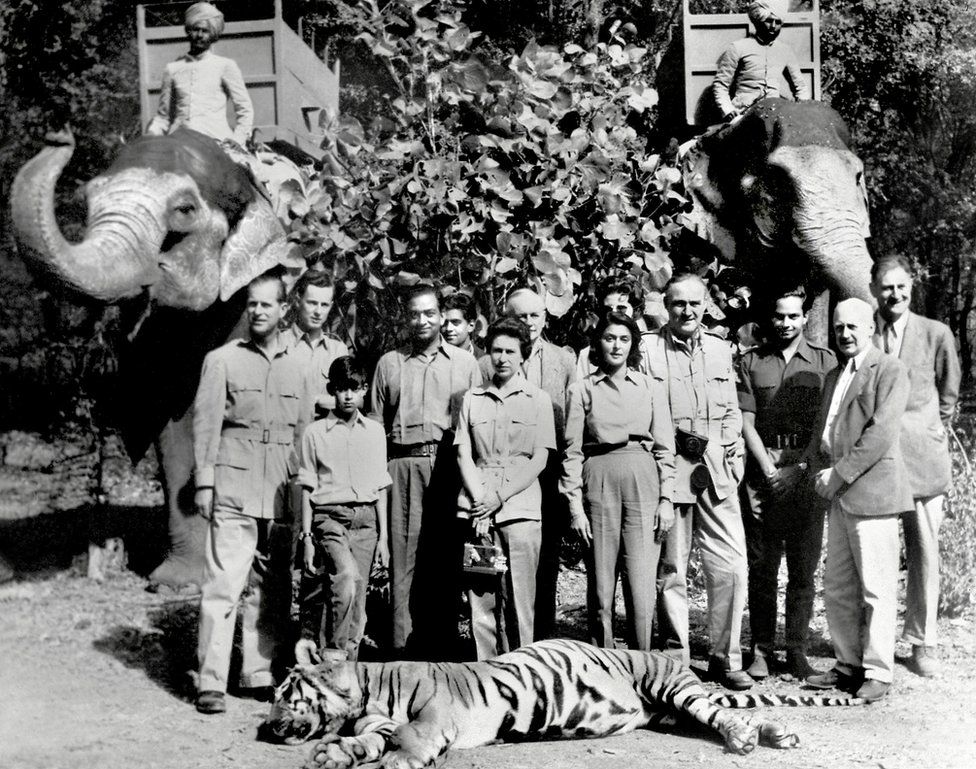
Now 36 years after surrendering their colony, Prince Philip and the Queen yearn for the days of the Viceroy and the East India Company. Their colonial nostalgia, however, went only so far.
Their menu during the trip included, “Western style dishes and very little or no Indian food, officials said. The Queen’s personal chef was reported to have told the Indian Prime Minister that the Queen likes simple meals.”
Strange, given that the British came all that way for spices.
While constructing a replica of your colonial occupation seems in poor taste, to say the least, Philip truly shined on the couple’s last visit in 1997. The Queen and her husband (and second-third cousin) Philip were meant to pay their respects at a memorial to the Jallianwala Bagh massacre, where British General Reginald Dyer ordered his troops to open fire on a crowd of civilians in 1919.
A plaque at the site reads: “This place is saturated with the blood of about two thousand Hindus, Sikhs and Muslims who were martyred in a non-violent struggle.”
Rather than offering an apology, or even condolences, Prince Philip took a different path. He read the plaque, and exclaimed, “Two thousand? It wasn’t, was it? That’s wrong. I was in the navy with Dyer’s son. That’s a bit exaggerated…it must include the wounded.”
Old Habits Die Hard: Palestine, Iraq, and the Middle East
Why do decades old denials of massacres and colonial nostalgia matter? Put simply, the same economic motives and chauvinistic racism which drove the British Raj still exist in British, and American, public policy. Nowhere is this more apparent than Iraq.
Designated a British mandate after the First World War, the British would join the Americans in once again invading Iraq in 2003. Of course, Philip was right there with them. He visited the country in 2006.
Philip gave a rousing speech to the British troops assembled in their former mandate: ”Everyone at home has been following what has been going on in this part of the world with a great deal of sympathy for those of you at the sharp end, who are trying to do your best to make life civilised and tolerable for the locals.”
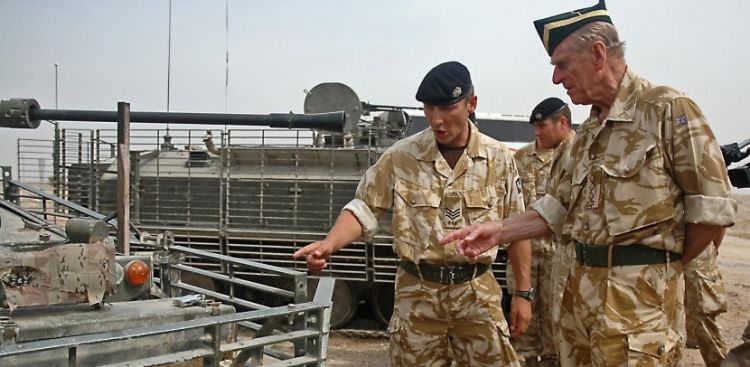
The British were merely trying to make life more “civilised and tolerable” for the locals (it’s hard to imagine him not saying ‘natives’) by invading. If Philip truly believed that was their intention, they failed miserably.
Even Iraqi power production did not reach its pre-war levels for years after the invasion. Perhaps Philip and the Queen’s successors will visit Iraq in the future, insist on hunting endangered animals, and live in a recreation of the Coalition Provisional Authority’s Green Zone Headquarters. Only time will tell.
The other former British mandate which concerned Philip was Palestine. The British sponsored the Zionist colonization and ethnic cleansing of the country, and then, as in India, left the country to a bloody partition.
Philip (who, again, had several members of his family marry into the Nazi Party) was a firm supporter of Israel. He even went as far as to speak to the Jewish National Fund, an organization which buys land in Palestine, and attempts to push Palestinians out of their homes. The British royals have never seen a colonial project they did not support.
Now, luckily for the as-of-yet non-British corners of the world, the monarchy is largely ceremonial. The true, direct damage this family can do is limited, or relegated to the past. That being said, as in Iraq, this family and what it represents is still a gravely malign influence on modern politics.
To this day, the Crown maintains ties to monarchies across the planet. King Salman and Crown Prince Mohammed bin Salman of the Kingdom of Saudi Arabia (itself a product of British imperialism) expressed their condolences for the death of their fellow royal:
As well they should, as the family owes the British a great deal. London propped up the Saudi royal family from their ascent to power, and continues to do so today. British arm sales to the Saudis have been, and continue to be, crucial to the brutal Saudi war effort in Yemen.
The Saudis were not only in their gratitude. Autocrats across the Middle East, with whom the Crown had glowing relations, reached out as well. Even monarchs no longer in power, such as the former Shah of Iran, enjoyed warm relations with Philip and the British royals.
So infamous were the crimes of the Shah that an entire museum of torture is dedicated to remembering them. Yet, the Queen and departed Philip still pose amicably next to the man who ran the SAVAK torture squads.
The Shah managed to flee the country following the Islamic revolution, and currently lives in exile. Still, he made time for Prince Philip. Former “Crown Prince” of Iran Reza Pahlavi himself extended condolences on Twitter.
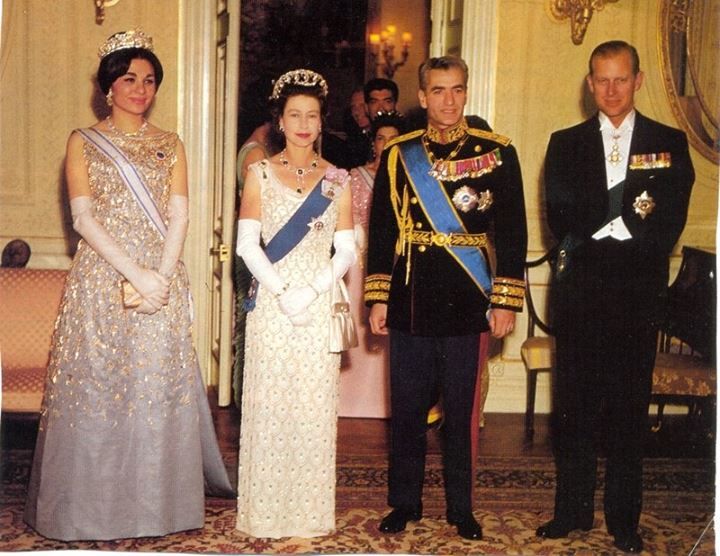
Philip had certainly collected quite the group of friends before his death. This fact, and most criticism of Philip, has little to do with the man himself, and everything to do with the nature of monarchy. In fact, this is true of most of the prince’s life. He was a soldier in WWII, and a soldier for the aristocracy.
The institution of British monarchy determined most of Philip’s life, and granted him a long life of extreme power and privilege. From their colonial instincts to their solidarity with royal despots across the globe, the monarchy does not deserve the day in the sun Philip’s death has granted it. Royals such as Philip and the Queen only seem endearing now that they have been stripped of their absolute power, and thus their ability to immiserate millions across the globe.
Somehow, they still seem to make do, inflicting damage with what little authority is left to them. As the French anti-monarchist Jean Meslier memorably wrote: “I would like — and this would be the last and most ardent of my wishes — I would like the last of the kings to be strangled by the guts of the last priest.”


